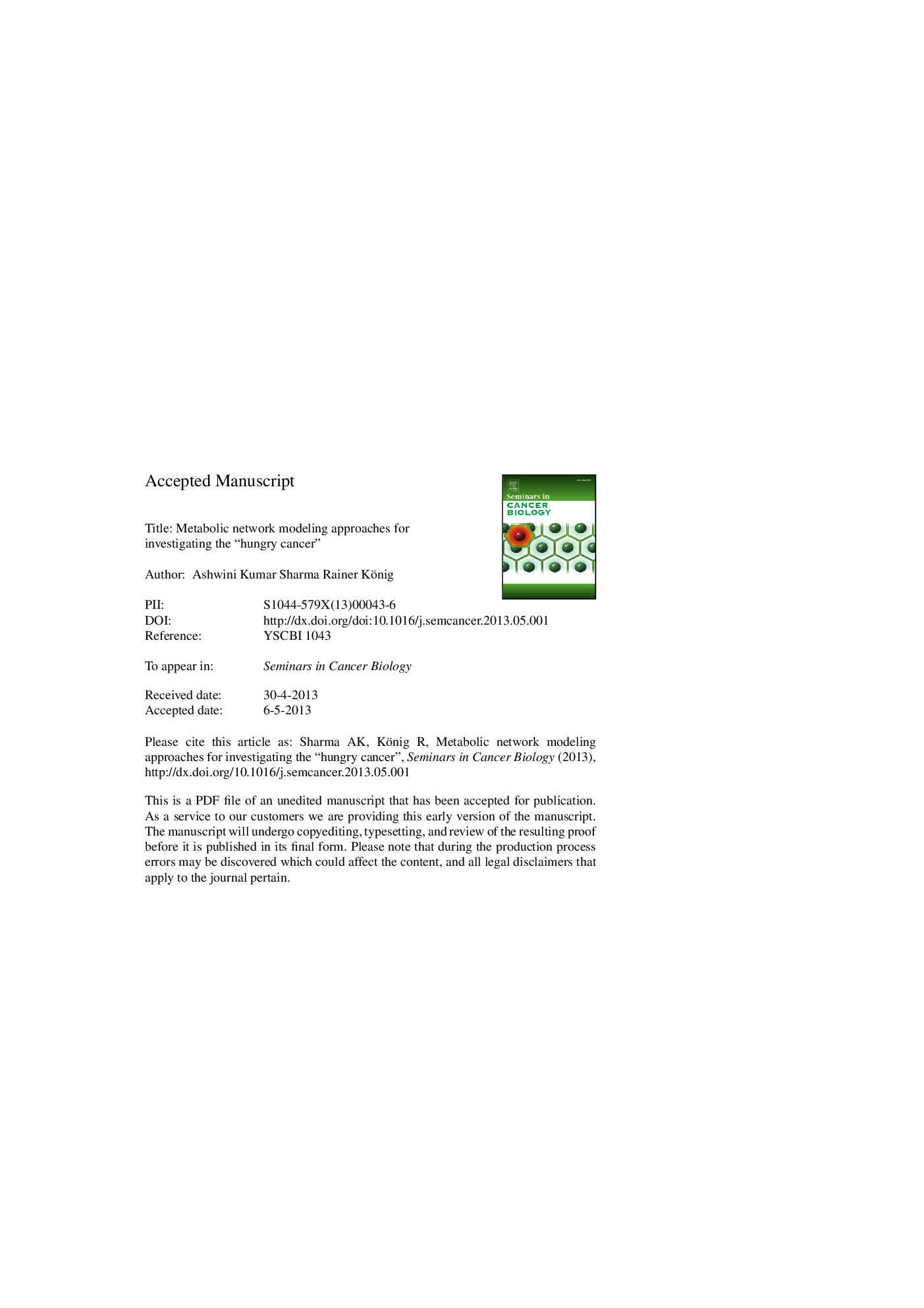| Article ID | Journal | Published Year | Pages | File Type |
|---|---|---|---|---|
| 10845620 | Seminars in Cancer Biology | 2013 | 27 Pages |
Abstract
Metabolism is the functional phenotype of a cell, at a given condition, resulting from an intricate interplay of various regulatory processes. The study of these dynamic metabolic processes and their capabilities help to identify the fundamental properties of living systems. Metabolic deregulation is an emerging hallmark of cancer cells. This deregulation results in rewiring of the metabolic circuitry conferring an exploitative metabolic advantage for the tumor cells which leads to a distinct benefit in survival and lays the basis for unbound progression. Metabolism can be considered as a thermodynamic open-system in which source substrates of high value are being processed through a well established interconnected biochemical conversion system, strictly obeying physiochemical principles, generating useful intermediates and finally resulting in the release of byproducts. Based on this basic principle of an input-output balance, various models have been developed to interrogate metabolism elucidating its underlying functional properties. However, only a few modeling approaches have proved computationally feasible in elucidating the metabolic nature of cancer at a systems level. Besides this, statistical approaches have been set up to identify biochemical pathways being more relevant for specific types of tumor cells. In this review, we are briefly introducing the basic statistical approaches followed by the major modeling concepts. We have put an emphasis on the methods and their applications that have been used to a greater extent in understanding the metabolic remodeling of cancer.
Keywords
Related Topics
Life Sciences
Biochemistry, Genetics and Molecular Biology
Biochemistry
Authors
Ashwini Kumar Sharma, Rainer König,
